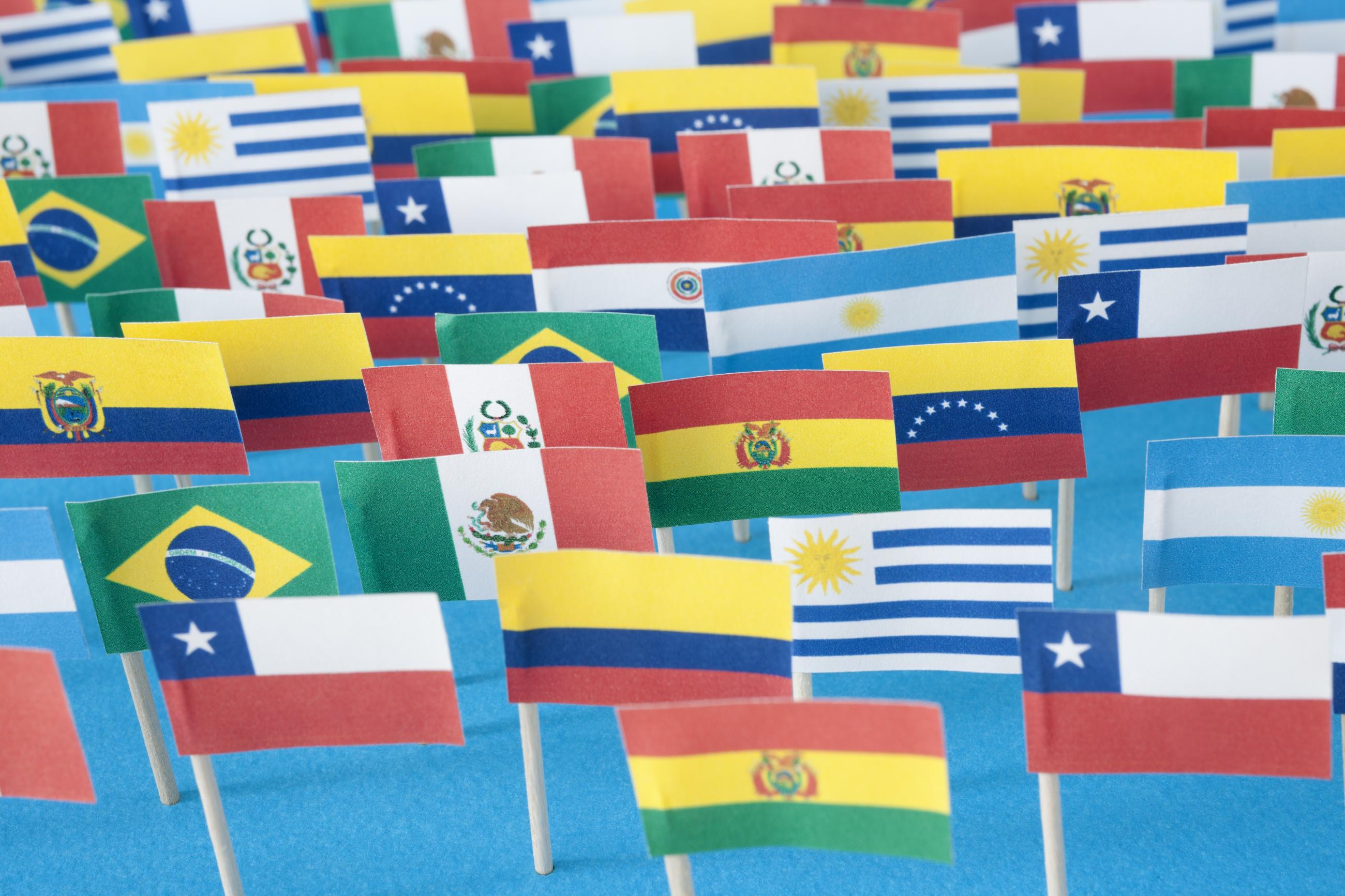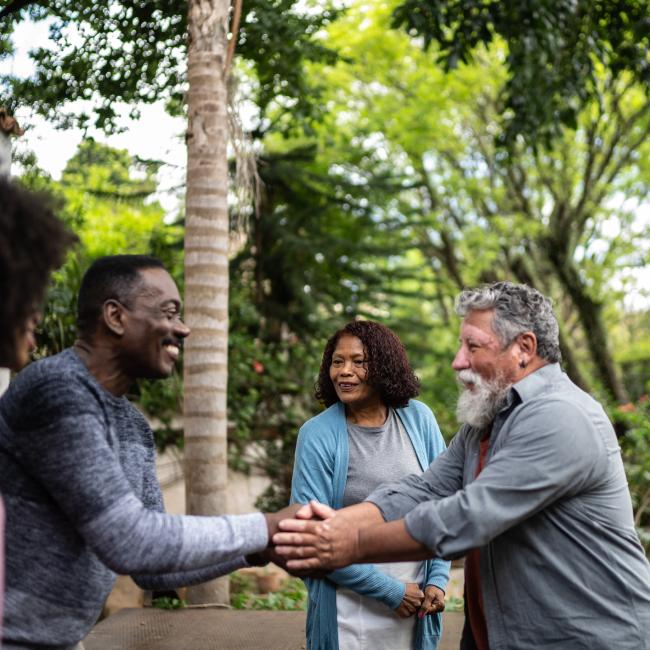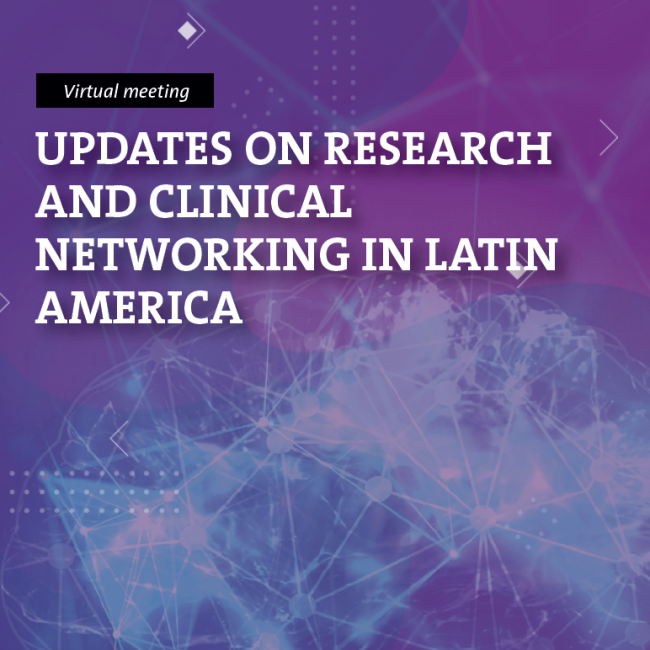Updates on Research and Clinical Networking in Latin America
On November 15, investigators from the Latin American Brain Health Institute (BrainLat), the Multi-Partner Consortium to Expand Dementia Research in Latin America (ReDLat), the Latin America and the Caribbean Consortium on Dementia (LAC-CD), and the Brain Bank of the Brazilian Aging Study Group joined the Global Brain Health Institute (GBHI) community to exchange ideas for future research and collaborations on dementia in the Latin America region.
The virtual event included talks focused on values and best practices in international research collaborations. It included more than 100 participants from North America, South America, and Europe.
Collective Efforts in Latin America
Since its founding, GBHI has emphasized a collaborative approach to dementia, including partnerships with leaders in Latin America. This model empowers the individuals from within a country to define its challenges and lead solutions, and those from outside to champion and accompany.
Two groups that evolved from this approach are BrainLat, launched in 2020, a multidisciplinary training center based at Universidad Adolfo Ibáñez in Chile which aims to empower innovative brain health research leaders across Latin America; and ReDLat, a five-year project focused on regional and multidisciplinary collaboration to treat and prevent dementia in diverse and underserved populations in Latin America that launched in 2019.
ReDLat investigators are collecting neuroimaging, genetic, and behavioral data on over 4,000 individuals from Argentina, Brazil, Chile, Colombia, Mexico, Peru, and the US, to broaden our understanding of the genetic and environmental determinants of dementia.
“I believe this is going to be the most powerful study in the world around neurodegenerative condition,” said Bruce Miller, co-director of GBHI.
The Decolonization of Global Health
Among several topics—ranging from air pollution, precision medicine, biomarkers, and caregiver support—speakers considered the decolonization of global health as a growing priority. Investigators reported embracing many of these tactics already, including decision-making and operations responsibilities held by people within a given country, and the practice of using local knowledge to form solutions and equitable geographic concentration of resources.
For instance, GBHI co-leads the Pilot Awards for Global Brain Health Leaders, a program to support dementia-related pilot projects in the home communities of the Atlantic Fellows for Equity in Brain Health, and BrainLat is funding seed grants that aim to build regional capacity and empower local teams to lead their own research agendas.
Other key themes included the social determinants of health (SDH), a relatively new idea in dementia. Modifiable risk factors, such as education, can prevent or delay up to 40% of dementia. ReDLat investigators have developed a tool to measure SDH, and are now applying it in the consortium to explore the impact of SDH on dementia presentation in diverse populations.
Understanding this relationship of dementia and SDH is a major focus for GBHI, so many fellows have developed projects around the concept, including Atlantic Fellow Elisa Resende, who was recently awarded an Fogarty grant from the National Institute of Health to lead a study with GBHI faculty member Lea Grinberg aiming to improve memory by educating people later in life.
Of nearly 200 Atlantic Fellows for Equity in Brain Health, about a third have come from Latin America, including Agustin Ibanez, Atlantic Fellow and co-director of BrainLat and ReDLat, and many are involved in these efforts.
Hosted by BrainLat and GBHI, the event was made possible by support from ReDLat funders, including the National Institute on Aging, Alzheimer’s Association, Rainwater Charitable Foundation, and Alector.

Authors

Niall Kavanagh
Communications Officer
GBHI Members Mentioned

Bruce Miller, MD
Founding Director, University of California, San Francisco
Elisa França Resende, MD, PhD
Neurologist

Lea Tenenholz Grinberg, MD, PhD
Neuropathologist and Neuroscientist



